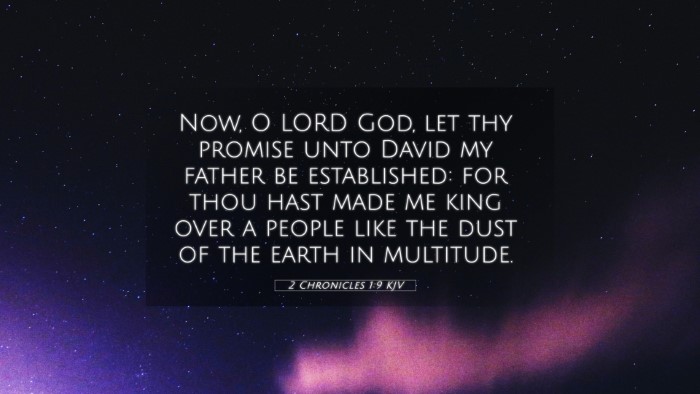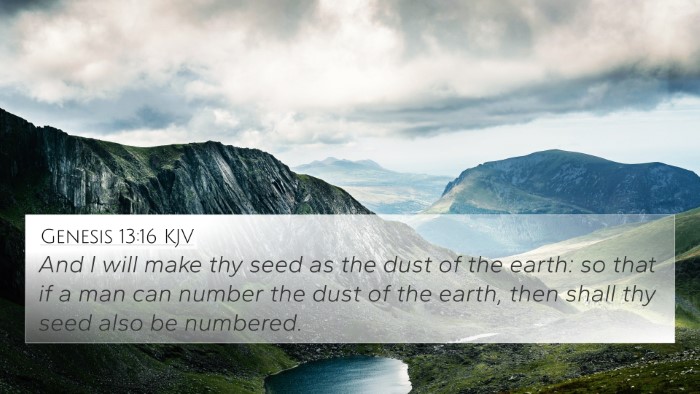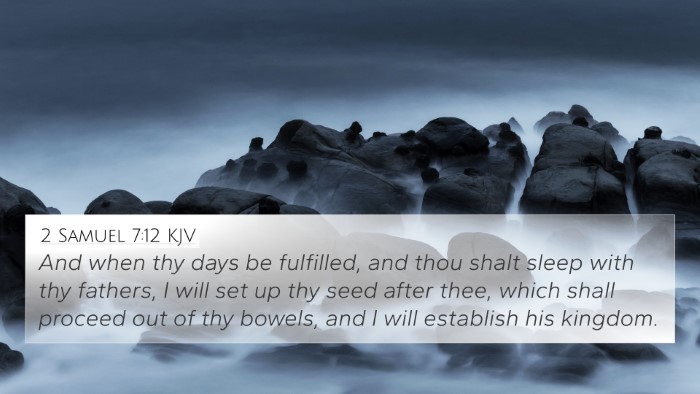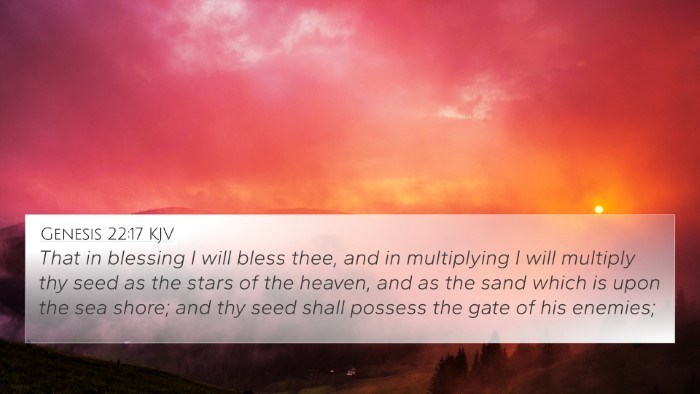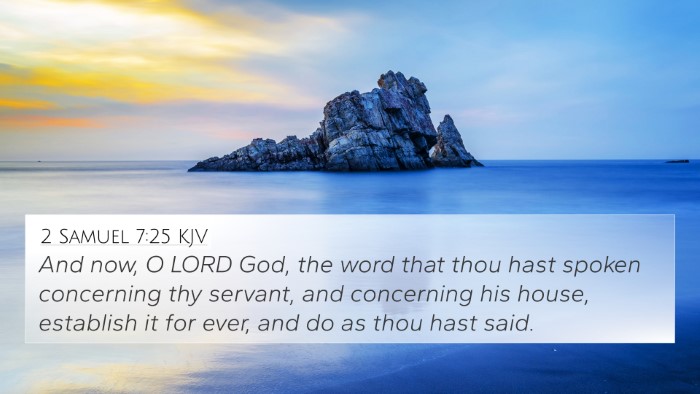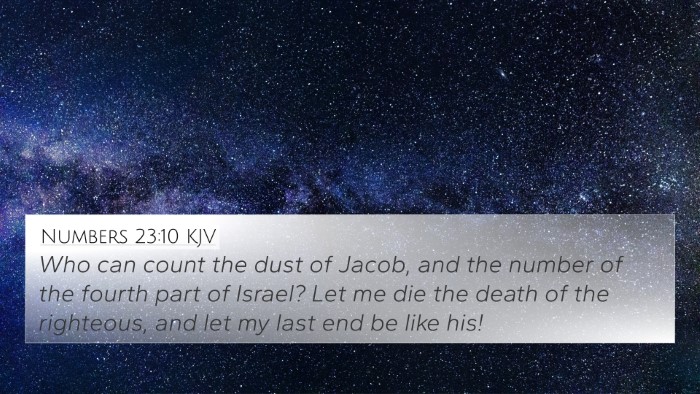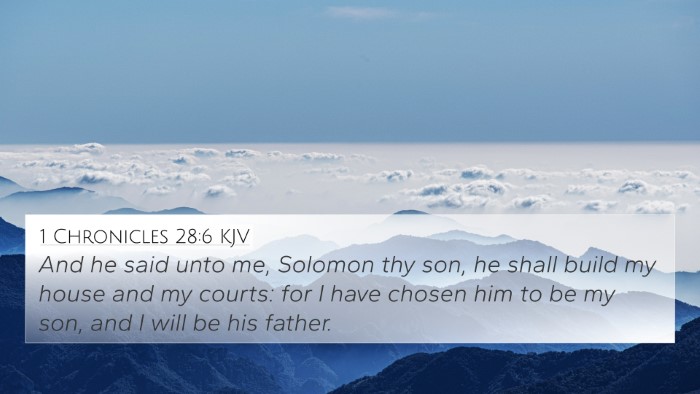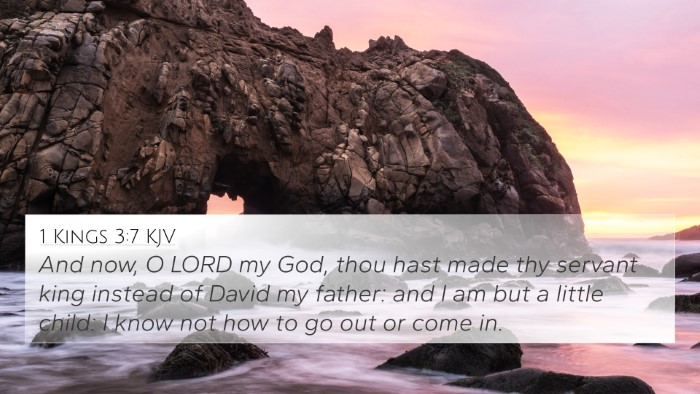Understanding 2 Chronicles 1:9
2 Chronicles 1:9 states, "And now, O Lord God, let your promise to David my father be established, for you have made me king over a people as numerous as the dust of the earth." This verse marks a significant moment in Solomon's reign, emphasizing his desire to fulfill God’s promise to David, his father. Below is a combined interpretation using insights from various public domain commentaries.
Context and Background
To comprehend 2 Chronicles 1:9, it is essential to explore the context. After David's reign, Solomon ascended the throne and recognized his responsibilities as king.
- Solomon's Youth: Solomon was young and aware of his inadequacy to lead the vast nation of Israel (1 Kings 3:7).
- Divine Calling: His acknowledgment of God’s promise reflects a humble heart seeking divine guidance.
Meaning of 2 Chronicles 1:9
This verse illustrates several critical themes:
- Fulfillment of Promises: Solomon underscores the importance of God's covenant with David, underlining how God's promises, made to one generation, can guide the next.
- Divine Authority: By stating he was made king over "a people as numerous as the dust," Solomon acknowledges his vast responsibilities and the divine authority by which he reigns.
- The Role of Prayer: It highlights the importance of prayer in seeking God's guidance for governance.
Commentary Insights
Various scholars have provided different insights into the meaning of this verse:
- Matthew Henry: He emphasizes Solomon's humility in recognizing that he did not earn his throne but received it through God's promise.
- Albert Barnes: He notes the significance of asking for wisdom to lead the people appropriately, which stems from his awareness of the great responsibility upon him.
- Adam Clarke: He comments on the vastness of the nation, suggesting that Solomon's reign is grounded in sacred responsibility rather than mere power.
Cross References
Several Bible verses align with the themes of 2 Chronicles 1:9, providing a rich context that enhances understanding:
- Genesis 13:16 - God promised Abraham that his descendants would be as numerous as the dust of the earth.
- 1 Chronicles 22:9-10 - David conveys God's revelation that Solomon would build the temple, affirming his special role in God's plan.
- Psalms 72:1-4 - A psalm that asks God to give the king His judgments for leading the people justly.
- 1 Kings 3:5-9 - Solomon's request for wisdom at Gibeon, demonstrating his understanding of his limitations and need for divine guidance.
- 2 Samuel 7:12-16 - God's covenant with David concerning his descendants and their authority over Israel.
- Isaiah 9:6-7 - The prophecy of a ruler who will sit on David's throne, reflecting God's eternal plan for leadership.
- James 1:5 - An encouragement to seek wisdom from God, resonating with Solomon's request.
Thematic Connections
This verse connects significantly with broader themes in the Bible:
- Kingship and Leadership: Similar motifs in Deuteronomy 17:14-20 discuss the role of a king and the need for divine instruction.
- Covenant Faithfulness: The continual emphasis on God's promises throughout scriptures (e.g., Hebrews 6:13-20).
- Wisdom in Governance: The connection between seeking wisdom in ruling established in Proverbs 2:6.
Conclusion
In conclusion, 2 Chronicles 1:9 provides rich insights into the nature of God's promises, the necessity for wisdom in leadership, and the importance of acknowledging divine authority in our roles. In studying this and related verses, believers are encouraged to delve into the connections between scripture, enhancing their understanding of God's overarching plan for His people.

